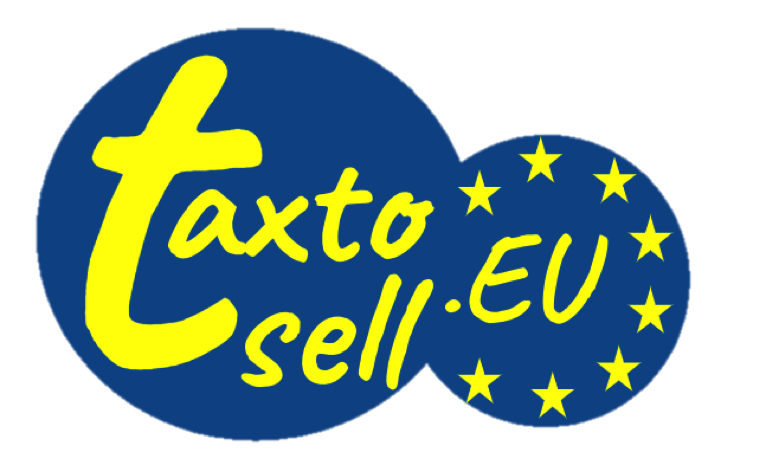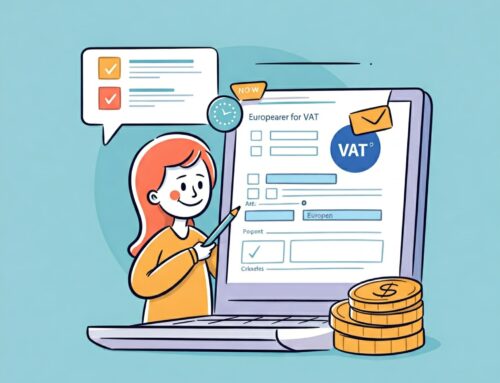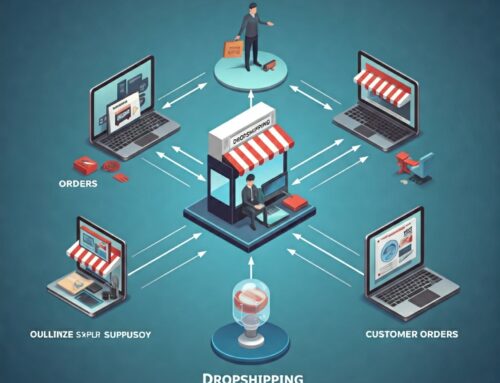This article has been written after the the substantial change in VAT regulation of July 2021.
If you do business in Europe, it is essential that you understand the complexities of VAT (Value Added Tax). With different types and standards across the continent, navigating the system can prove daunting. That is why we have drawn up a comprehensive and updated guide on VAT rates in Europe. From an overview of VAT in Europe to VAT registration requirements, rules for businesses and cross-border transactions, as well as exemptions and refunds, we have you covered. Whether you own a small business or a multinational, understanding VAT Europe is crucial to success. We’re going to it!
General description of VAT in Europe
When doing business in Europe, it is essential to understand the value added tax system (VAT). This tax on consumption taxes the goods and services of most countries of the European Union (EU). However, the different VAT rates and regulations create a complex system, so companies must have a comprehensive knowledge of VAT in Europe in order to be able to navigate effectively.
A key component of the VAT system in Europe is the different VAT rates in EU countries. Most countries have a standard rate of about 20%, but there are differences. For example, the standard rate of VAT in Germany is 19%, while in Luxembourg it is slightly lower at 17%. In addition, certain goods and services have reduced rates of VAT, for example food, books and medicines. Companies operating in a number of countries should be aware of the different VAT rates in order to avoid compliance problems. In particular, they should pay attention to the EU countries.
For any question you can ask our free online vat consultant
VAT rates in European countries
As a businessman or business owner, knowing the different VAT rates in European countries is essential to comply with the tax laws and regulations. Value Added Tax rates can range from 6% to 27%, depending on the type of merchandise or service being sold. It is essential to investigate and understand the specific VAT rates for your company in order to avoid possible penalties or fines for non-compliance.
Doing business in several European countries requires knowing the different types of VAT and the regulations that apply in each country. Some countries may have several VAT rates, while others may have only one. In addition, there may be certain exemptions or reduced rates for specific goods or services. Understanding these deviations is fundamental to not having problems.
Employers should take into account the impact of VAT rates on their profit or loss account. Higher rates can lead to increased costs for consumers, which can affect sales and profits. In addition, VAT rates can influence your pricing strategy when you sell in different countries. Incorporating these costs into your pricing strategy is essential to success.
In conclusion, being informed of the different VAT rates in European countries is a crucial aspect of doing business in the region. Keeping up-to-date with the latest regulations and types, you can ensure compliance with tax laws and regulations, while minimizing costs and maximizing profits. As a tip, keep in mind the different vat rates and their effects when you develop a pricing strategy for your business.
TABLE OF VAT STANDARD RATES (SR) IN % IN EACH MEMBER STATE (MS) OF EU:
| MS | SR (%) | MS | SR (%) | MS | SR (%) |
| Belgium | 21 | France | 20 | Netherlands | 21 |
| Bulgaria | 20 | Croatia | 25 | Austria | 20 |
| Czech Republic | 21 | Italy | 22 | Poland | 23 |
| Denmark | 25 | Cyprus | 19 | Portugal | 23 |
| Germany | 19 | Latvia | 21 | Romania | 19 |
| Estonia | 20 | Lithuania | 21 | Slovenia | 22 |
| Ireland | 23 | Luxembourg | 17 | Slovakia | 20 |
| Greece | 24 | Hungary | 27 | Finland | 24 |
| Spain | 21 | Malta | 18 | Sweden | 25 |
VAT registration requirements in Europe
When considering VAT registration requirements in Europe, several factors need to be taken into account. Depending on the nation, companies may have to be discharged on VAT if their income exceeds a certain amount in a given period. In addition, specific rules may apply to companies engaged in international transactions or trading in certain types of goods or services. For this reason, it is essential that companies explore and understand the VAT registration requirements of each country in which they operate to avoid penalties and ensure compliance with local laws.
A vital consideration that companies must take into account in relation to VAT registration requirements is the presence of special schemes in certain countries. For example, some nations have put in place simplified VAT schemes for small businesses, which could lead to lower reporting requirements or reduced VAT rates. In addition, there are special schemes (OSS, IOSS) for companies selling goods or services through the web, which could simplify the VAT registration process and reduce administrative burdens. Companies should therefore investigate these possibilities and find out whether they can benefit from any special type that might be advantageous.
VAT rules for businesses in Europe
Before setting up a business and start online selling in EU, it is vital to become familiar with VAT rules. This complex tax is calculated on the added value of each stage of the production and distribution processes. As an entrepreneur, it is essential to know how to manage VAT, to discharge into it and meet the requirements. Ignoring the rules can lead to fines and penalties, so it is essential to know the VAT rules in Europe in depth.
In addition, it is important to be aware of cultural disparities. Each country has its own rules, and some even have different VAT rates for certain goods and services. It is therefore essential to investigate and understand the VAT laws of each nation in which you do business. In addition, it is aware of cultural differences which may affect the way in which VAT is interpreted and applied. While some countries may be more lenient in terms of compliance, others may be more stringent. Knowing these cultural variations can help you avoid misunderstandings and ensure that you comply with the VAT laws of each country.
VAT rules for cross-border transactions in Europe
Cross-border purchases between European countries can be intricate, particularly as regards value added tax (VAT) rules. VAT is a charge that is incorporated in the cost of goods and services, and differs from one country to another. In cross-border transactions, companies must know the VAT rules of the country they sell to. Ignoring these rules can lead to penalties and fines. In this article, we are going to deepen the VAT rules for cross-border transactions in Europe.
VAT rate: One of the fundamental considerations in relation to cross-border transactions is the VAT rate. VAT rates vary significantly between European nations, as some countries have a normal rate of 20% or more and others have a reduced rate of just 5%. It is essential that companies are aware of the VAT rate of the country they sell, as it will affect the final cost of their goods or services. Companies should also be aware of the exemptions or reductions that may be applied, such as the reduced rate for certain goods or services.
VAT registration: Another important factor to be taken into account when dealing with cross-border transactions is the VAT registration. Companies selling goods or services in another European country may have to register for VAT purposes in that country. It can be a complicated procedure, and it is vital to ensure that all necessary documentation is completed accurately and on time. Do not register for VAT purposes in the country where you sell can carry penalties and fines.
Billing and record-keeping: As far as VAT rules are concerned for cross-border transactions, it is also essential that companies are aware of the rules for invoicing and record-keeping. Invoices must include certain information, such as the VAT number of the buyer and the seller, the amount of VAT passed on and the total amount due. Companies must also keep accurate records of all their transactions, including invoices and receipts. Failure to comply with these rules can lead to penalties and fines.
VAT exemptions and refunds in Europe
The European VAT legislation implies the necessary knowledge that organisations must meet, including exemptions and returns for small businesses with a low annual turnover. These companies often avoid registering for VAT purposes and do not need to pass on VAT on their products or services. However, those who wish to register voluntarily may choose to recover the VAT from purchases made prior to registration.
In addition, certain goods and services are usually exempt from VAT. Examples include medical services, education and financial services. In addition, certain countries can provide exemptions for commodities such as food and clothing. It is essential that companies know these exemptions to avoid charging more to their customers and possible penalties or fines.
In addition, companies operating across European borders can opt for VAT refunds. For example, if a company buys goods or services in one country and then sells them in another, it may be entitled to the refund of the VAT paid in the main nation. However, this procedure can be complex and requires careful documentation and compliance with European VAT rules. Companies should contact an expert VAT advisor to ensure they follow the proper procedures and make the most of their VAT returns in all vat countries.
Download here an Excel file with all the applicable VAT rates in EU. Source: European Commission website
Download here an Excel file with the Standard VAT rates applicable in each EU country with CSV format to load in wordpress. Source: European Commission website
Conclusion
In conclusion, the VAT system in Europe is complex and subject to frequent changes. However, following the steps outlined in this guide, companies can navigate the different VAT registration requirements and procedures. It is important to keep up-to-date with the latest VAT rates and rules, especially when cross-border transactions are subject to VAT. Whether you are the owner of a small business or a multinational corporation, understanding the rules and regulations subject to VAT is crucial to success in the European market.




